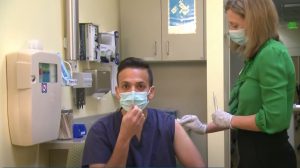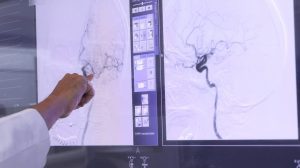NEW YORK (Reuters Health) – An injection of autologous cultured osteoblasts can accelerate the healing of long-bone fractures, according to a report in the February 12th online issue of BMC Musculoskeletal Disorders.
“While fractures generally will eventually heal, bone union can frequently be delayed to the extent that it requires bone transplantation,” lead author Dr. Seok-Jung Kim, from Catholic University College of Medicine, Seoul, said in a statement. “Although bone transplant remains the most effective method of bone union, osteoblast injections provide an alternative which can be performed under local anesthesia with no requirement for surgery.”
The findings are based on a study of 64 patients with long-bone fractures who were randomized to receive osteoblast injection or no treatment.
Osteoblasts were derived from bone marrow obtained from the iliac spine during fracture surgery. The bone marrow cells were differentiated into osteoblasts and expanded in culture over a 24-day period.
Osteoblast injection into the fracture area, under local anesthesia, was associated with a significant increase in fracture callus formation at 1 and 2 months, the report indicates.
The osteoblast injections were generally well tolerated and no specific complications were noted, the authors report.
The findings support osteoblast injection as a safe and effective treatment alternative to patients with long-bone fracture, Dr. Kim concluded.
References:
BMC Musculoskeletal Disorders 2009.




